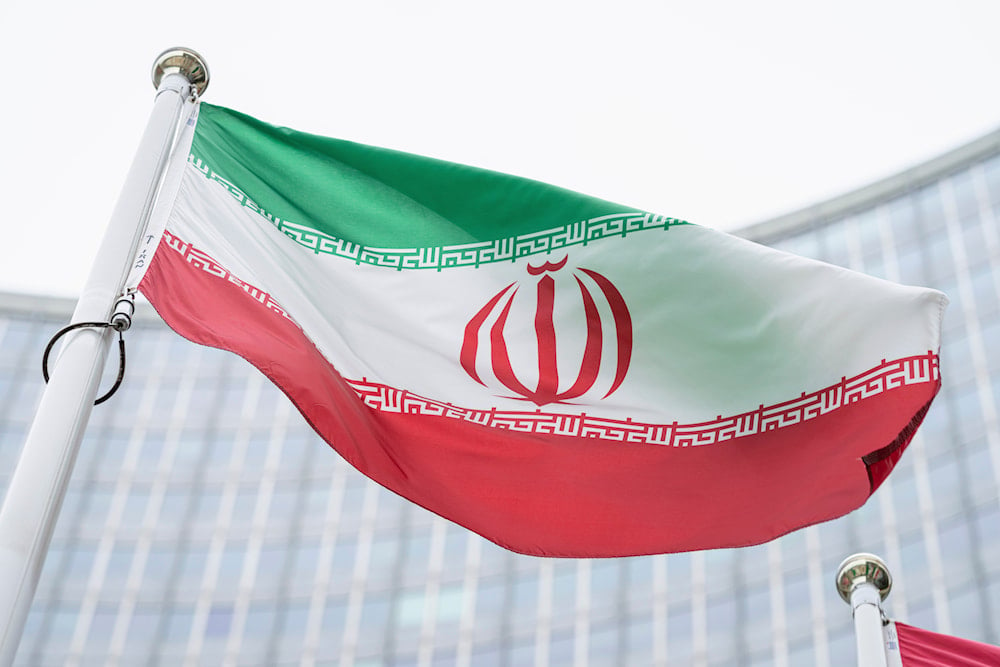Iran slams US travel ban on citizens as racist and discriminatory
Iran's Foreign Ministry condemns the US travel ban on Iranian citizens, calling it a racist and hostile act.
-

The flag of Iran waves in front of the International Center building with the headquarters of the International Atomic Energy Agency, IAEA, in Vienna, Austria, on May 24, 2021. (AP)
Alireza Hashemi Raja, director general of the Department of Iranian Expatriates Affairs at the Iranian Ministry of Foreign Affairs, has strongly condemned the recent US travel ban on Iranian citizens. In a forceful statement, he described the measure as a manifestation of racial discrimination and hostility toward Muslims and the Iranian people.
Hashemi Raja criticized the decision by the US administration to bar Iranians from entry based on religious or ethnic background, calling it a reflection of "the pervasiveness of a mentality of racial superiority and racism among American decision-makers."
The condemnation follows an executive order issued last Thursday by US President Donald Trump, which bars citizens of 12 countries from entering the United States. These countries include Afghanistan, Myanmar, Chad, Congo, Equatorial Guinea, Eritrea, Haiti, Iran, Libya, Somalia, Sudan, and Yemen.
Iran calls out institutional racism in US policy
In addition to the full travel ban, the order imposes partial restrictions on citizens of seven other nations: Burundi, Cuba, Laos, Sierra Leone, Togo, Turkmenistan, and Venezuela. The White House has justified the order as a measure intended to "protect national security," while also warning that more countries could be added to the list if deemed necessary.
Hashemi Raja condemned the travel ban as evidence of institutional racism in US immigration policy. He said, "Depriving hundreds of millions of people of their right to travel to another country simply because of their nationality or religion is a clear example of racial discrimination and institutional racism."
He emphasized that the decision reveals longstanding antagonism by American officials toward the Iranian population and Muslims more broadly.
In his concluding remarks, Hashemi Raja called on the United Nations and human rights organizations to take a clear and public stance against what he described as unilateral and discriminatory US policies. He urged the international community to uphold humanitarian norms and challenge the marginalization of nations targeted by such executive actions.
Trump announced the ban via a video message from the Oval Office, declaring that recent events "underscored the extreme dangers posed to our country by the entry of foreign nationals who are not properly vetted." He added, “We don’t want them.”
The proclamation followed an incident in Colorado where Mohammed Sabry Soliman, an Egyptian national, was accused of using a homemade incendiary device at a pro-"Israel" demonstration. Authorities alleged that Soliman was in the US illegally and had filed for asylum three years earlier, in 2022.
“We cannot have open migration from any country where we cannot safely and reliably vet and screen,” Trump said, emphasizing the security implications of the Colorado attack.

 3 Min Read
3 Min Read








